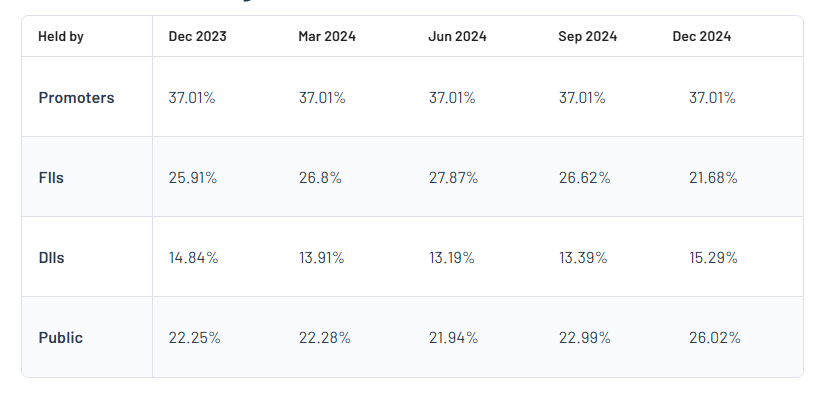Trent Share Price Target Tomorrow 2025 To 2030
Trent Limited is a leading retail company in India, known for brands like Westside, Zudio, and Star Bazaar. It operates in fashion, lifestyle, and grocery segments, catering to a growing customer base. The company has shown steady growth due to strong brand appeal, store expansions, and a rising preference for organized retail. Trent Share Price on NSE as of 1 April 2025 is 5,588.20 INR.
Current Market overview of Trent Share Price
- Open: 5,350.85
- High: 5,614.95
- Low: 5,334.20
- Previous Close: 5,325.15
- Volume: 1,724,212
- Value (Lacs): 96,297.24
- VWAP: 5,546.60
- Mkt Cap (Rs. Cr.): 198,539
- Face Value: 1
- UC Limit: 5,857.65
- LC Limit: 4,792.65
- 52 Week High: 8,345.00
- 52 Week Low: 3,843.00
Trent Share Price Target Tomorrow 2025 To 2030
| Trent Share Price Target Years | Trent Share Price |
| 2025 | INR 8,350 |
| 2026 | INR 10,435 |
| 2027 | INR 12,564 |
| 2028 | INR 14,680 |
| 2029 | INR 16,374 |
| 2030 | INR 18,200 |
Trent Share Price Chart

Trent Shareholding Pattern
- Promoter: 37.01%
- FII: 21.68%
- DII: 15.29%
- Public: 26.02%

Key Factors Affecting Trent Share Price Growth
-
Retail Expansion and New Store Openings
Trent, a leading retail company, is expanding its store network across India. More stores mean higher sales potential, better brand visibility, and increased revenue, which can positively impact its share price. -
Growth of Westside and Zudio Brands
The strong performance of Trent’s brands, especially Westside and Zudio, plays a key role in its stock growth. Zudio, in particular, is rapidly gaining popularity due to its affordable fashion, driving higher customer engagement and revenue. -
E-commerce and Omni-Channel Strategy
Trent’s investment in digital platforms and e-commerce integration helps it reach a wider customer base. A strong online presence, combined with physical stores, enhances sales and boosts investor confidence. -
Financial Performance and Profit Margins
Consistent revenue growth, profit margins, and efficient cost management contribute to Trent’s stock performance. A strong balance sheet and positive earnings reports often attract more investors. -
Consumer Spending Trends
Rising disposable income and a shift toward branded retail shopping favor Trent’s business. If consumer demand for fashion and lifestyle products continues to grow, it will support the company’s share price appreciation. -
Partnerships and Collaborations
Strategic alliances with global brands and suppliers help Trent expand its product range and improve supply chain efficiency. These partnerships strengthen its competitive position in the retail sector. -
Market Sentiment and Economic Conditions
Broader economic factors like inflation, interest rates, and overall stock market trends impact investor sentiment toward retail stocks. A strong economy with high consumer spending can positively influence Trent’s stock price.
Risks and Challenges for Trent Share Price
-
High Competition in Retail Industry
Trent faces strong competition from both established retail brands and new players. Companies like Reliance Retail, Aditya Birla Fashion, and international brands could impact its market share and growth. -
Changing Consumer Preferences
Trends in fashion and lifestyle change quickly. If Trent fails to adapt to shifting customer demands, it may struggle to maintain sales growth, affecting its share price. -
Economic Slowdown and Inflation
If the economy weakens or inflation rises, consumers may reduce spending on fashion and discretionary products. This could lead to lower revenues for Trent and put pressure on its stock performance. -
E-commerce Disruption
Online shopping is growing rapidly, and aggressive competition from e-commerce giants like Amazon and Flipkart can challenge Trent’s sales. If the company does not strengthen its digital strategy, it could lose customers. -
Rising Operational Costs
Increasing costs of raw materials, rent, salaries, and logistics can impact profit margins. If Trent cannot control expenses effectively, its financial performance may weaken, leading to negative investor sentiment. -
Regulatory and Taxation Risks
Changes in government policies, taxes, or retail industry regulations can affect Trent’s business operations. Strict compliance requirements and unexpected policy shifts could create uncertainties for investors. -
Stock Market Volatility
Broader market fluctuations, global uncertainties, or negative sentiment in the retail sector can cause Trent’s stock price to be volatile. Even strong business performance may not always shield the stock from market-wide corrections.
Read Also:- Natco Pharma Share Price Target Tomorrow 2025 To 2030







